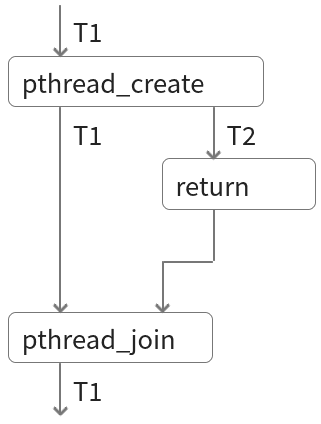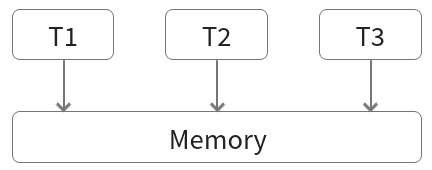4.1 Synchronization and Deadlocks
Interaction
- We have seen how threads are created, scheduled, and executed
- The tools we have so far allow threads to run independently
- Sometimes threads have dependencies
Independent Execution
- Create threads
- Run independently
- Combine thread results

What if threads need to share data?
Memory
- A pointer to a memory location can be shared when creating a thread
- The thread can allocate memory and use stack allocated memory
- Global variables and data are accessible to all threads

What behaviors do we need to avoid if we have shared memory?
4.2 Races and the Need for Mutual Exclusion
Thread Race Conditions
- Two threads may be operating concurrently in an unsyncronized manner
- This can lead to output that differs over different program runs
- This may lead to bugs or unexpected behavior
Example
Can the example sell more tickets than are available?
What if it is running in multiple threads?
Core Issue
- Multiple threads operating on the same data structure with interleaving modifications
Solution
- Allow only one thread to access the data at a time
- Sometimes referred to as locking the data structure
- This creates mutual exclusion (mutex)
Thread Safe Operations
- Only reading from shared data structure
- Interleaving operations without data dependencies
- Interleaving atomic operations